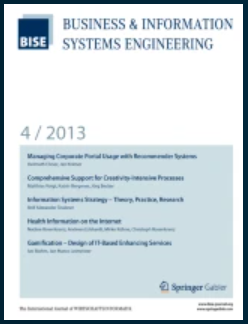Social Media Crisis Communication Model for Building Public Resilience: A Preliminary Study
IF 7.4
3区 管理学
Q1 COMPUTER SCIENCE, INFORMATION SYSTEMS
引用次数: 3
Abstract
There is an ongoing discussion about the effectiveness of social media usage on the ability of people to recover from the crisis. However, the existing social media crisis communication models could not address the dynamic feature of social media users and the crisis, respectively. Therefore, the objective of this study is to conduct a preliminary investigation of the social media crisis communication model for building public resilience. Thus, 34 items were generated from the literature concerning the crisis, crisis response, social interaction, and resilience. The items were validated by three experts via content validity index and modified kappa statistics. After passing the validation test, the instruments were pre-tested by 32 participants. The reliability of the items was analyzed using Cronbach’s alpha. Also, the model fits and mediation were examined by the regression model, and the hypotheses were independently assessed in process macro models. Based on the result obtained, each of the constructs satisfied the internal consistency requirement; crisis (0.743), crisis response (0.724), social media interaction (0.716), and resilience (0.827). Furthermore, the result also indicates that the regression model is a good fit for the data. The independent variables statistically significantly predict the dependent variable, p < 0.05. Also, the result of the process macro models indicates that all the hypotheses are independently supported.构建公众弹性的社会媒体危机传播模式初探
关于社交媒体使用对人们从危机中恢复能力的有效性,人们正在进行讨论。然而,现有的社交媒体危机传播模式并不能分别解决社交媒体用户和危机的动态特征。因此,本研究的目的是对构建公众弹性的社交媒体危机传播模式进行初步调查。因此,从文献中产生了34个关于危机、危机反应、社会互动和心理弹性的项目。问卷由三位专家通过内容效度指数和修正kappa统计量进行验证。仪器通过验证测试后,由32名参与者进行预测试。问卷的信度采用Cronbach’s alpha进行分析。通过回归模型检验模型的拟合和中介作用,并在过程宏观模型中对假设进行独立评估。根据得到的结果,每个构造都满足内部一致性要求;危机(0.743)、危机应对(0.724)、社交媒体互动(0.716)、弹性(0.827)。此外,结果还表明回归模型与数据拟合良好。自变量预测因变量有统计学意义,p < 0.05。此外,过程宏观模型的结果表明,所有假设都是独立支持的。
本文章由计算机程序翻译,如有差异,请以英文原文为准。
求助全文
约1分钟内获得全文
求助全文
来源期刊

Business & Information Systems Engineering
Computer Science-Information Systems
CiteScore
13.60
自引率
7.60%
发文量
44
审稿时长
3 months
期刊介绍:
Business & Information Systems Engineering (BISE) is a double-blind peer-reviewed journal with a primary focus on the design and utilization of information systems for social welfare. The journal aims to contribute to the understanding and advancement of information systems in ways that benefit societal well-being.
 求助内容:
求助内容: 应助结果提醒方式:
应助结果提醒方式:


